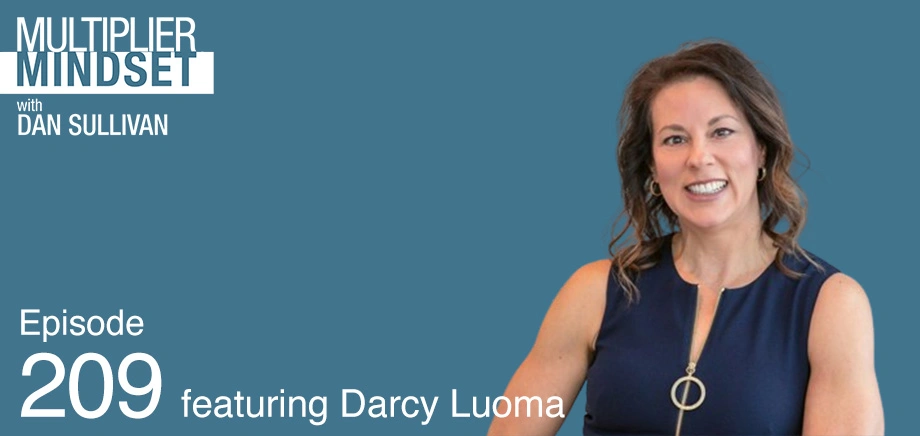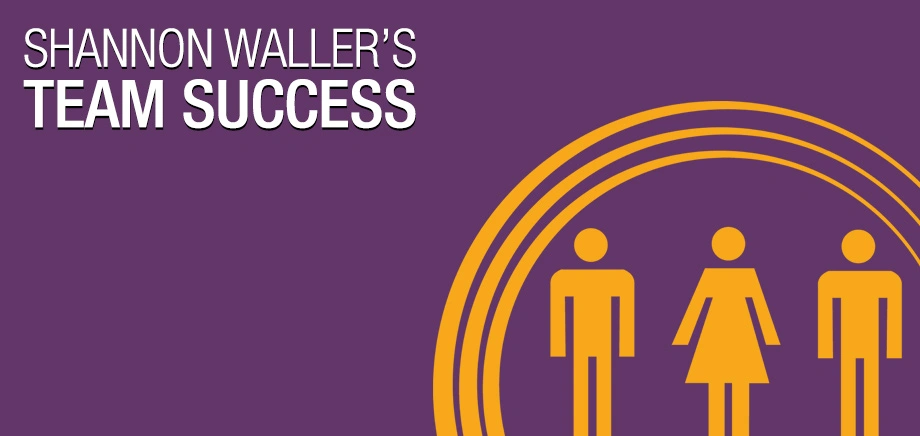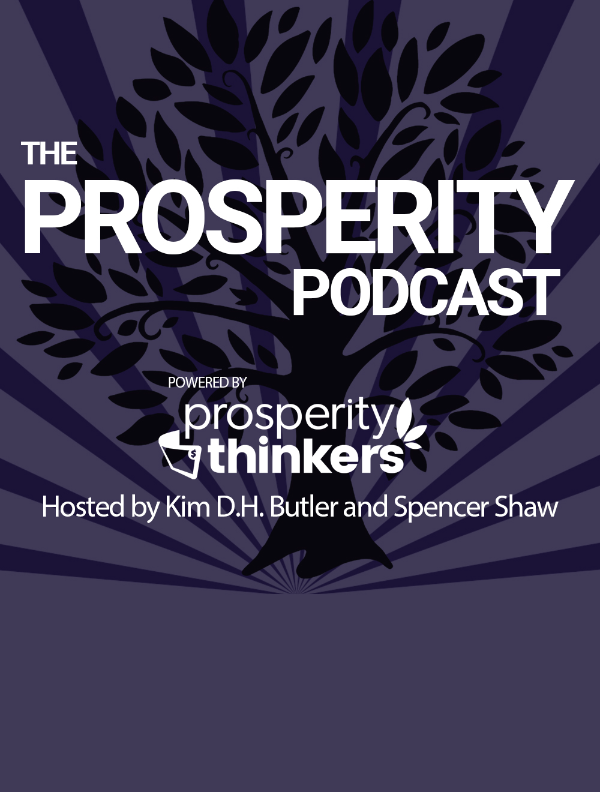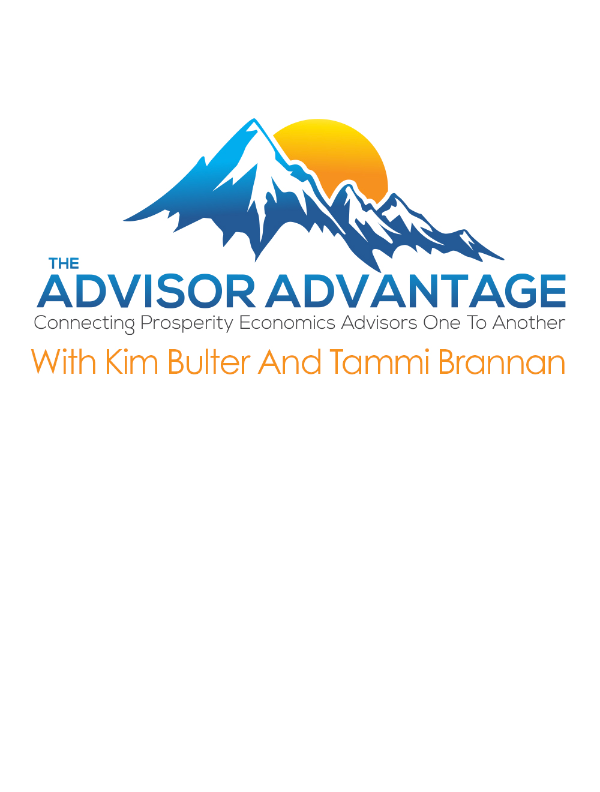From Trauma To Triumph: One Entrepreneur’s Unbelievable Journey, With Darcy Luoma
January 09, 2024
Hosted By
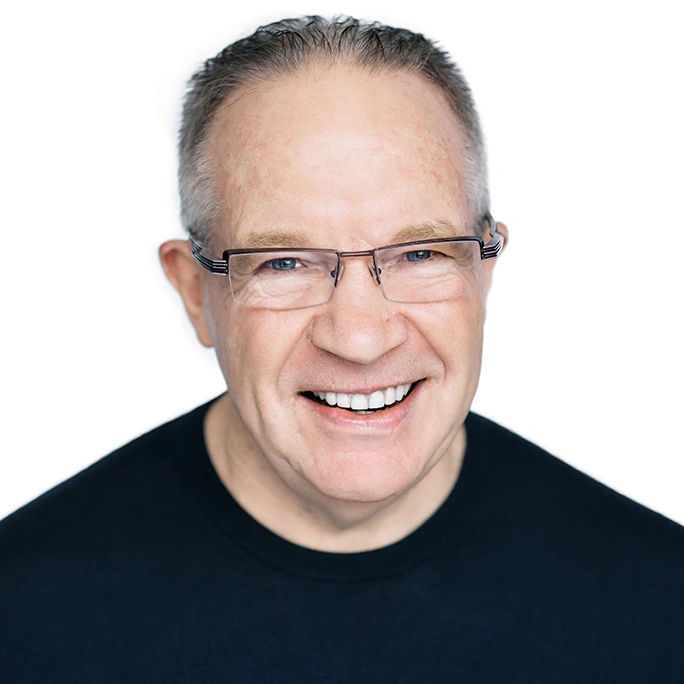 Dan Sullivan
Dan Sullivan
Dan Sullivan and guest Darcy Luoma dive into an extraordinary and unbelievable journey of resilience, reinvention, and triumph in the face of an unprecedented personal challenge. Darcy’s unwavering spirit and strategic approach are a true inspiration for all entrepreneurs navigating their own obstacles.
Here's some of what you'll learn in this episode:
- The initial obstacles Darcy faced when becoming an entrepreneur, and how she overcame them.
- The traumatic experience Darcy had to work through while figuring out how to continue to run her business.
- Why Darcy was in a position to test drive her own concepts in the most extreme way.
- How Darcy prepared for business success before launching her business.
- The big risk Darcy took at a critical time, and how it paid off.
- What Darcy gets out of Strategic Coach.
Show Notes:
Running for elected office is a purely entrepreneurial activity.
We’re not in control of what happens in the world, but we’re in control of our responses to what happens.
Entrepreneurs transform situations from huge negatives to breakthrough positives.
Strategic Coach is a thinking tool culture.
If you have an anchor client, then you don’t have to fear that you need to say yes to everything.
The entire business of an entrepreneur can be based on the entrepreneur’s reputation.
Good people do bad things, and it doesn’t mean they’re bad people.
If you want to handle your challenges thoughtfully, and you want to have strong relationships, you need to train and practice to be thoughtfully fit.
Having an entrepreneurial business means you get to test things.
Resources:
10x Is Easier Than 2x by Dan Sullivan and Dr. Benjamin Hardy
Episode Transcript
Dan Sulllivan: Hi, this is Dan Sullivan. I'd like to welcome you to the Multiplier Mindset Podcast. On today's episode of Multiplier Mindset, we have an incredible interview with Darcy Luoma, who's got a coaching consulting company. Location is in Fitchburg, which is a suburb of Madison, Wisconsin. I was especially taken by what she talked about. I mean, there's about amazing five or six things which are incredible for entrepreneurs to hear. But the big thing was her political background of working with elected officials. And I say that because first of all, I myself, since the 1960s, so this goes back 60 years, I've been involved with seven major political campaigns. And I've always found them really fascinating because to run for elective office is a purely entrepreneurial activity where the outcome is either you win or you lose. So it's clear cut. There's no ambiguity about elections.
And the other thing that fascinated me was her assessment of the kinds of discussions that go on in political campaigns just to get person elected, but also then the political discussions of once a person's elected, what people talk about. And this prompted me a lot to create this Strategic Coach, specifically related to the Strategy Circle. I created the Strategy Circle because of a political discussion at a very high level in the Canadian government. I had a cabinet minister as one of my clients. And in the Canadian government, it's really, really hard because if you're a cabinet minister, which means that you're basically running a whole part of the country. And this one had a really, really difficult portfolio. But at the same time, you're a member of Parliament, so you have to answer local issues. And it's very, very complicated, you know. And you got, at most, four or five years to get something done as a cabinet minister, but then you got to get re-elected.
So, and I said, I need some sort of tool to deal with the complexity of these situations. So I asked the cabinet minister, I says, you know, I've got the project that we're gonna talk about today, but I wanna ask you a fundamental question, that you've got about three or four years to create something significant before the next election, and you gotta get elected. So if I were to take you into the future, right to the possible, let's say three years from now, and you're looking back from where you are right now—and I made it up on the spot, 10 Quick Start is worth something. So, you know, if you were thinking, what's the one thing that you really want to get accomplished during this term of office as a cabinet minister, and get elected, that just one thing, if you could only get one big thing done in the next four years, what would the one thing be besides getting elected? And that would make you happy with the progress you made during these three, four years. This is the R-Factor Question, and I just came up with it on the spot.
And he said, oh, what an incredible question. And his aides were saying, yeah, but we've got this. He said, no, no, this is a big deal. This is a big deal. And they had a flip chart up there. So I said, let's just draw the picture. Let's pick a date that's going to be close to when the election is. And let's just write down everything you want to achieve that would make you feel that you had done a big deal. He said, well, I want this and this and this and this, and we put some numbers to it and everything like that. And it was a big event. It was a big piece of legislation that if he got that legislation through, that would be a huge deal. His bureaucratic aides were trying to defer this. I said, no, no, no, just follow the conversation. So he says, yeah, that would be fantastic. And then I said, okay, so what are the biggest obstacles that you face right now that would prevent you from doing this. And all of a sudden, the aide starts saying, hey, this is really good. And we did it, and we got there, and it was time up. It was the end of the meeting. And he said, okay, well, let's schedule another meeting. Let's finish this. And I walked out of the room, and I said to myself, I just invented water. I said, this is so amazing. All I have to do is ask a question and draw a picture. That was the start. And I sort of structured it. I drew drawings of it. But I said, first of all, you have a vision, then you have the obstacles, and then you have a conversation to transform the obstacles into action that will achieve the goal. And I walked out, and I don't think my feet were actually touching the ground. Now, I'm saying this just to set up what Darcy has to say here, because that changed my life, and it was a thinking tool. It's a Strategy Circle, and that's where the Strategy Circle was created. And then in the next six years, my income went up 10 times just doing this one thinking tool. And I said, wow. Because I had a really rough first eight years. I went bankrupt twice. I went through a divorce, but that's just extreme market research. I mean, I had some big issues there, but when Darcy talks about what happened to her, I said, wow, what an incredibly resilient human being. I mean, quite apart from being an entrepreneur, just an incredibly resilient human being.
And the thing that I'd like to point out here is the issue of being in control and being in charge. She had just lost control of her life with the tragedy. It was really a tragedy, you know, that could have destroyed her family, her children could have destroyed her business and everything else. But what I got from this is that Darcy took charge of the situation. So I make a distinction that we're not in control of the world. We're not in control of what happens in the world. But we can be totally in charge in our response to what happens. So she just took 100% responsibility. And she says, whatever happens, I've got to protect my girls at home, I've got to protect my business, and I've got to grow it. And I've got to get past this. And that started her new career. She had already come up with the idea five days before she got blindsided. I don't think I've done interview with any entrepreneur who got blindsided worse than she did. And I'm just sort of amazed by this story. Okay. But this is what entrepreneurs do. Entrepreneurs have a very, very negative situation for themselves or there's a very negative situation for someone else and they take charge of the situation and they transform it from a huge negative to a breakthrough positive.
And this is one of the most amazing entrepreneurial stories that I've ever heard and I really like that, you know, she's very complimentary about Strategic Coach, but Strategic Coach is just this universe of thinking tools. Our company is entirely a thinking tool culture. And what we've listened to, I've personally coached 7,000 entrepreneurs. Next year will be my 50th year of coaching. And it's just that anything that entrepreneurs run into, I said, what's the best way to think about this where you're in charge of your response, regardless of what the world, you know, we have all sorts of things. COVID was a big boom, you know, that was a really big obstacle for a lot of people. And the ones who came through were the ones who just took charge of their response to the situation. We do not control the world, we can't control outside factors, but we can totally be in charge of our response.
Darcy Luoma: So I'm Darcy Luoma, and I own Darcy Luoma Coaching Consulting. I launched it in January of 2013. I spent 20 years basically in politics and government working on campaigns. I worked on a couple of presidential campaigns for the White House, and then I ran one of our U.S. Senators' offices for 12 years. And when he announced he was not going to be seeking re-election, it meant I was going to be seeking a new job. So I hired a coach, and everybody assumed, myself, my husband, my colleagues, my family, that I would stay in the political government non-profit sector. And my coach asked me a question that literally changed my life forever. She said, “Darcy, if in 10 years you looked back at this moment in time in this decision and you had no regrets, what would you do?” And I was like, are you kidding? I'd launch my own business. I'd be a coach and a trainer and a speaker. It was immediate. And almost as quickly as I was excited to say that, the inner trash talk started and the saboteur is like, I can't do that. I'm the sole breadwinner for a family of four. I need health insurance. I need salary. I need stability. So she helped me work through those obstacles. Some of them were real, finances and health insurance and all that. And then many of them were the saboteurs in my head that I was making up. And so January 2nd, 2013, I shut down the senator's office. And January 3rd, I launched my coaching and consulting firm. Well, the launch of my business was one of the things I did as I was preparing because I was not an entrepreneur. I was not a business owner. I was an education background. So I interviewed, oh gosh, I don't even remember, a couple dozen entrepreneurs and business owners who I respected. And I asked them, what did you learn through your journey that would help me as I'm launching my business? And what do you know now that you wish you knew then? And what regrets do you have? And I just learned so much. And one of the things that I took away was to have an anchor client. And that way, the anxiety of launching a business and, of course, not having a paycheck that's coming every two weeks and health insurance and benefits. If you have an anchor client, then the fear is gone of, I need to say yes to everything. And so that was a really critical part of my launch, is having that anchor client that I knew if I got nothing else for that year, I would at least be able to pay my mortgage, I would be able to keep my daughters in their 4-H and Girl Scouts and programs and all of that. That was really helpful.
So my girls were young. My husband stayed home full-time. John, he was a great dad. He did everything from haircuts to Girl Scout cookies. He just handled it. And we decided that that was best for our family dynamic. And when I launched my business in 2013, we had a conversation. I said, the research shows that, and I don't remember the exact details anymore, the numbers, but it was some crazy, 80% of businesses fail in the first two years. Some crazy, insane number. And so I said, I want to double down. Like, I really want to make this work. Are you in? And he's like, I'm in, whatever it takes. And so for those first two years, I worked hard to build a successful, sustainable business while he handled things on the home front. And that worked for our family. He loved doing the groceries and preparing the lunches and taking the kids to get their teeth cleaned and all of that. And I worked out of my home. And so I was still able to go to the piano recitals and the gymnastic tournaments and the karate belts and all of that.
Well, I've had a lot of challenges. I'd say the biggest challenge on this journey from launching my business 10 years ago till now—so I launched it in 2013. 2015, we expanded. I brought on six coaches and trainers, which was wonderful. And then the day before my 10-year wedding anniversary, I got a phone call from my neighbor. And she said, Darcy, what is going on at your house? I'm like, what? I don't know. I'm not home. I'm at a Comforts. Why? She said, they just arrested John. They took him out in handcuffs, barefoot, and the police took him away. There's 40 or 50 police cars and a SWAT team surrounding your house. And I was like, what? Do you have the wrong number? It was so not my world. So I found out later that my husband was arrested for sexual assault of a minor. He was put in jail and it took about 18 months for the sentencing and conviction to happen. And he was ultimately convicted to 10 years in prison. And so from that day when he was arrested, he never came home. And that just blew my world completely upside down. I would even say it was my worst nightmare, but I had never had a nightmare that bad. There were media trucks out in front of the house and his mugshot was all over the nightly news and social media and of course my daughters were traumatized because they had never gone to bed without their dad tucking them in and making them breakfast. And so just dealing with the trauma for myself, but then also navigating that with the girls while trying to figure out how do I continue to run my business? Oh, and now, gosh, I need to actually go get groceries and make meals and all of the things that he handled. It was incredibly challenging. I handled it one day at a time, I had a great therapist. I worked with some phenomenal child psychologists, because I had no idea how to help my girls through that. They had fabulous therapists that I found, child therapists, to help them navigate that. The crisis communications firm that I hired, I was scared. My whole business as an entrepreneur is based around my reputation, and I was scared that my business was going to falter. I was probably more scared that my girls were going to, I mean, who knows what, don't even want to put into words the fear there.
And what I realized over time was that everybody has challenges. Everybody has hurdles. Many are not displayed on the nightly news in the way mine was, but from the standpoint of that which doesn't kill you makes you stronger, I made a decision, and luckily I had a team. So my crisis communications person, the president, she said, “Darcy, you need to take a couple months off of work.” Now, that's not the free time that Dan is talking about. That was a whole different type of free time. And I'm like, what? I tend to think I have pretty good business instincts. My instincts were exactly opposite. I now have tens of thousands of dollars of bills every week and growing by the week. I cannot let up the gas. I'm scared. And I'll tell you what, I did not agree. And I told her, I disagree, but I'm paying you to advise me and help me through this and navigate this. And that's what I did. And it was the best decision ever because it allowed me the time to file for divorce, to deal with the legal system, the search warrant. They had confiscated all of my computers. I had to deal with protecting my client data that was on my computers, right? And then to get therapy. And I went to a week-long healing intimate treason conference in Arizona, to just do the hard work. And it was hard, because here I am, the day before our 10-year wedding anniversary, the week before we're going to rent an RV and go on a whole trip around the U.S., now my house is destroyed from a search warrant. My husband's in jail. My girls, I actually gave my sister legal custody and moved them to another state because the media trucks were nonstop just to protect them so they didn't have to be navigating this. And to take time off at that time was the hardest thing ever because I couldn't just keep myself busy. I had to deal with the emotions and the fallout of it. But doing that at that time is probably one of the main reasons I can even be talking about this with you now here today.
So my attorney said, don't talk to anybody about anything. This is severe. This is extreme. And so I went into hiding in secrecy for about 18 months while the sentencing was happening. And it was awful. So Bravo Magazine is a professional women's magazine in my community, reached out and said, we want to do a cover story on this. I was like, oh, okay, let me get back to you. And I went and talked to my daughters first. And they're like, yeah, mom, that's great. And I said, but it's going to be about daddy. And it's going to be about the arrest and what happened. They're like, mom, it's our story. And we're living it. And we're fine. And that's okay. Then I went to my team and asked them. And they said, don't do it. Don't do it. That is too big of a risk. We've gotten through this without being named and without having a fallout. And the business is thriving. Why would you do that? And I said, you know why? Because it's exhausting living a secret and hiding. And I would go to a client luncheon, and halfway through the lunch, they'd say, so how are you, Darcy? And I'd be like, do they know? Do they not know? Do I say something? Do I not? I hated that. So I made the decision to do that story. And it was transformational, because the exact opposite. My biggest fear was that I was going to lose clients. I now have a sex offender husband, registered felon. The exact opposite happened. People opened up. They became more vulnerable. They shared their secrets, and they said, I need help. I've been living this lie in this challenge, or our team is dysfunctional and toxic and I need help. And so it really strengthened the business. And it strengthened the girls and I, our relationship. I now was fully present in their lives in a way that I wasn't when John was there.
And then also, we forgave him. And we made a choice to be in a relationship that the child psychologist said, as long as the girls aren't at risk, which thank goodness they were never at risk. It's always better for children to have a relationship with an incarcerated parent. And so I took their lead. And so we went and visited him in the Dane County Jail for a year and a half and then in the prison and really used that to have a different awareness of people are flawed. People are human. Good people do bad things. And it doesn't mean they're bad people and they're monsters.
Here's the other layer that, I mean, you know, there are angels always, I think, looking down on us. We work with teams and organizations and leaders to create high-performing people and teams. We spent five years researching, what are the biggest hurdles that get in the way of peak performance in the workplace? And we spent years researching and developing this Thoughtfully Fit model. And the notion, this metaphor is, if you want to be physically fit, you need to train and practice. You can't wake up on Saturday morning and decide to do a marathon if you haven't trained and practiced. You also can't get abs of steel doing 10 sit-ups once a month. You need to be consistent. So in the same way, if you want to handle your challenges thoughtfully, if you want to have strong relationships, you need to train and practice to be thoughtfully fit. Thoughtfully Fit was officially launched five days before my husband's arrest. And all of a sudden, I became ground zero to test drive it in my own life in the most extreme way. The concepts that I outlined that helped my clients to get through their hurdles and their challenges and to show up intentionally in their life, all of a sudden I was using on a daily basis in my own life. I mean, I would not recommend it. It was not the best go-to-market strategy, but in hindsight, oh my gosh, it really just gave me a platform to try out these concepts and a resolve to be able to use them and to know that they work.
This is where I love Strategic Coach. I love the tools. I love that Dan has built this program for entrepreneurs because what I'm doing in Strategic Coach is figuring out what's next. And I am looking at it in a way that I never would have if I was not in this program. The book, 10x Is Easier Than 2x. Oh my gosh, I read that in a weekend and I was like, wow, I need to rethink everything that I'm doing. And that doesn't mean that everything I'm doing needs to be thrown out. It's like, that's the foundation, where do we go next? And so we're exploring, we've created this Thoughtfully Fit Gym where people can go to work out their minds. It's an online virtual program. So we're exploring, how do we scale that? How do we grow that? How do we make the gym more accessible to managers and teams and leaders who want to have better relationships but struggle because they have different personalities. And you've got the visionary with the analyst and they're butting heads because one's big picture creative and the other is like, we can't do that. It's not in the budget. And, you know, you've got the nurturer going against the closer, right? We want all the voices heard and what's the process? And the closer is like, I don't care. We just got to get it done. We need results. Helping managers to have tough conversations, to give really positive performance reviews, helping leaders to be able to set boundaries, to say, no, these are all the skills that we work with individuals and teams doing. We're working at that 10x vision. How do we scale that and grow that? That's what I'm really excited about and why I'm so grateful to have Strategic Coach to just help me dream bigger. The Impact Filter, the Strategy Circle, the tools—not only do I leave here and share them with my team, I also have put my assistant through the assistant program. I put my VP of learning experiences and design, I put her through The Team Tools Program. I mean, I am just amazed at how it's helping us have a shared vocabulary and to be able to understand that being an entrepreneur and having a small business, an entrepreneurial business, means we get to test things. I mean, coming out of politics, talk about bureaucracy, things move slowly in the U.S. Senate, in the governor's office, in the White House. Here, we get to test things. We get to try. And the Strategic Coach is helping me embrace that mindset, that full permission to do that.
So the most important piece of advice for entrepreneurs, I think the first thing I would comment on, is just tap into your heart and what brings you joy and build your business around that. I talked about doing all those interviews before I launched my business and I had so many people say, you have to have a podcast, you have to have a podcast. So I went back to my business coach and I'm like, okay, I got to launch a podcast. And she's like, how excited are you about that? I'm like, I'm not excited at all, but what does that have to do with it? That's what everybody's telling me I should do. And she's like, no, you should do what's in your heart. And I'm like, I don't want a podcast. And so like, give yourself permission. That's the beauty of not going to a job nine to five where they're telling you what to do. You get to create what you want to do. And I'd say from the Strategic Coach perspective, it's like finding your Unique Ability. What I love about that is it's not just what you're good at, what you're excellent at, it's what also fulfills you and brings you joy. So the second piece of advice I would give for any entrepreneurs, which actually might be the first piece, is join Strategic Coach. And I know this isn't a commercial, but it's so sincere. I found this program last year in the 10th year of my business. I wish I would have found it in the first year. Regardless of where an entrepreneur is on their journey, start where you are and invest in yourself. And similar to Thoughtfully Fit, you train and practice where you are. You can't bypass the hard work. One of the things that I've had to overcome is this feeling of, oh, I wish I had done that, or they're doing something better, or gosh, they've got a better business model. And just in Strategic Coach, you don't compare yourself to others. You just look at where am I today and what's next for me. So full permission to do that. I think that's one of the things that is a human struggle. And it's a struggle for me. And it's okay to just be on your own journey.
Related Content
The Impact Filter
Dan Sullivan’s #1 Thinking Tool
Are you tired of feeling overwhelmed by your goals? The Impact Filter™ is a powerful planning tool that can help you find clarity and focus. It’s a thinking process that filters out everything except the impact you want to have, and it’s the same tool that Dan Sullivan uses in every meeting.

